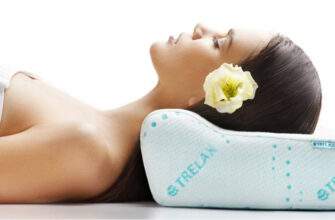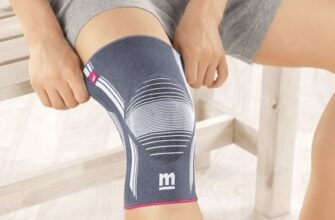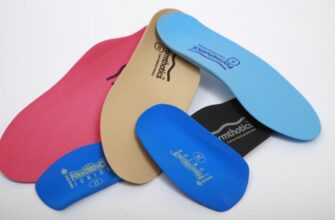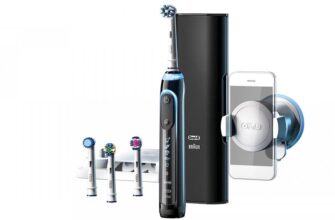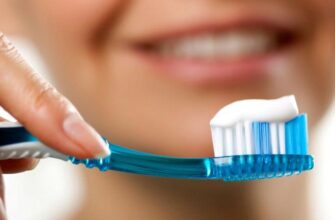A person with perfect vision is harder and harder to meet today. Russia's health ministry says vision problems affect 50% of the country's population. In the next 10 years, this number will increase to 70%. This is due to increased eye strain. Televisions, computers, mobile devices, printed information negatively affect a person. Using the right contact lenses and eyeglass lenses can help remedy the situation.
- What lenses are best for eyes and glasses?
- Advantages and disadvantages of glasses
- Advantages
- disadvantages
- Advantages and disadvantages of contact lenses
- Advantages
- disadvantages
- What are the best lenses for glasses?
- Optical performance
- Refractive index
- Manufacturing materials
- Special coatings
- Why are contact lenses good for the eyes?
- Contact lens classification
- Lenses are also divided into categories depending on the mode:
- Depending on the characteristics of the material, there are:
- The main classification is based on the purpose of use:
What lenses are best for eyes and glasses?
Professional vision correction is necessary in situations where there are deviations from normal values. Even if the deviations are minor, the correct measures should be taken. For children, glasses are prescribed from any age, and lenses from 10 years, in order to avoid serious consequences. For adults, glasses and lenses help relieve eye strain.
Modern technologies make it possible to create high-precision lenses for eyes and glasses. The following materials are used for manufacturing – glass, plastic, organic matter. Today glasses are not just a tool for correcting vision, but also an accessory.
For many, glasses are the best choice, but they are not worn in every situation. They limit peripheral vision and often cannot be worn due to the threat of breakage.
Advantages and disadvantages of glasses
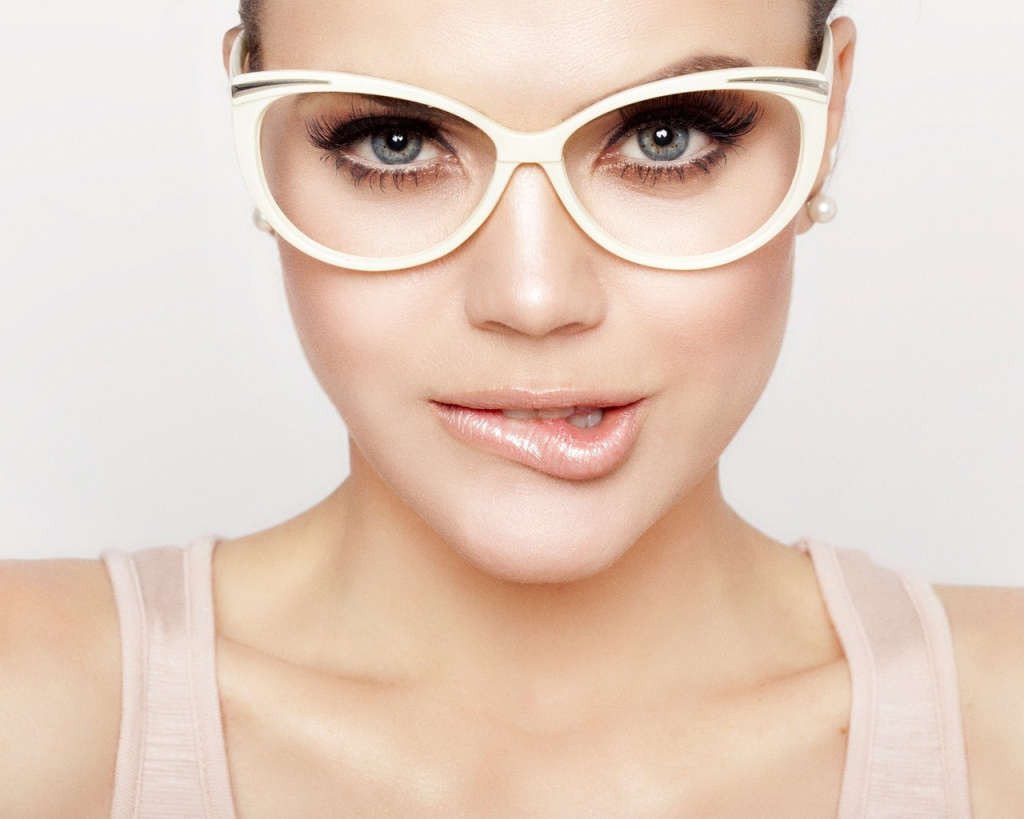
Advantages
-
a large selection of frames for men, women and children;
-
ease of maintenance
-
lenses for any situation – for work, reading, walking;
disadvantages
-
not always comfortable to wear;
-
limitation of lateral vision;
-
glasses fog up from temperature changes and hot steam;
Advantages and disadvantages of contact lenses
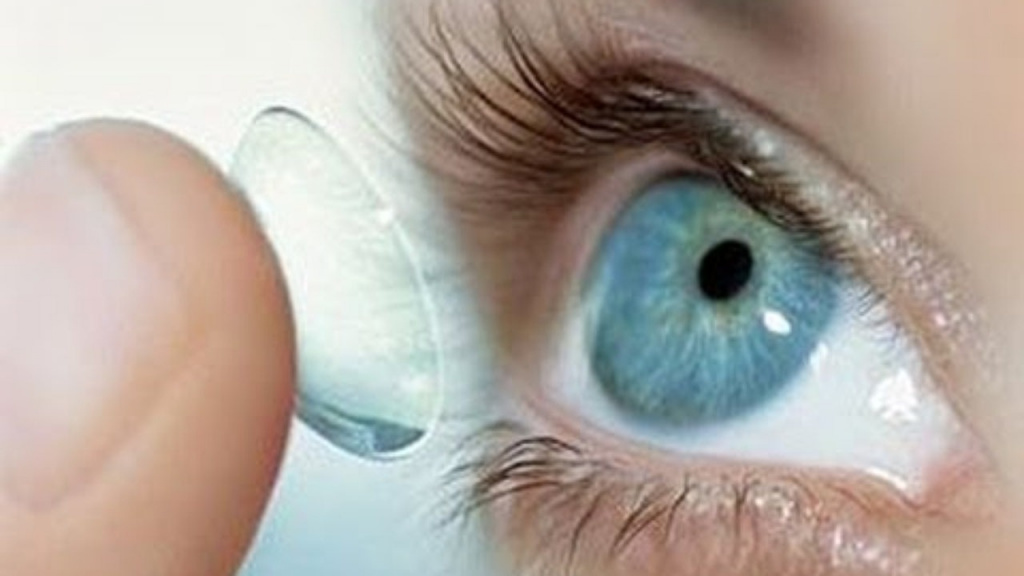
Advantages
-
ease of wearing;
-
easy vision correction;
-
unlimited physical activity;
disadvantages
-
the complexity of the procedure for putting on and taking off;
-
risk of eye infection.
For many people, contact lenses have become an excellent choice for physical activity and other activities. But they need to be changed regularly, use special solutions and maintain hygiene. Many people are afraid of the procedure for removing and putting on lenses.
Glass lenses are made with added minerals. They do not scratch over time, they are used for several years. But if handled carelessly, they break and hit the face with fragments. Because of the risk of injury, it is better to recommend them only to neat people who lead a calm lifestyle. At the same time, mineral lenses are more relevant for diseases, for example, a high degree of myopia.
The analog is plastic lenses that are difficult to break. They are lightweight and comfortable, but scratches appear on their surface over time. Glasses with such lenses are prescribed for children or simply for those who lead an active lifestyle.
Organic lenses are the product of innovative technologies. They are manufactured using polymeric materials. They are lightweight and durable, providing correct vision correction.
What are the best lenses for glasses?

Lenses are the most important element of glasses, therefore attention should be paid to their choice. In such matters, it is better to consult a doctor, and also focus on the characteristics:
-
optical indicators;
-
refractive indices;
-
materials of manufacture;
-
special coatings and so on.
This allows you to get a result that meets expectations. It is better for children to choose glasses that do not break or get damaged. The best material is polycarbonate.
Colored lenses are suitable for people who spend a lot of time driving or walking in the air. Greens and browns help to enhance contrast, while yellows muffle bright glare.
For those who have to work a lot at the computer, it is better to choose lenses that reduce eye strain and protect against serious problems. It is recommended to wear such glasses even in case of visual deviations for prevention.
Optical performance
Diopters and center-to-center distances are important optical indicators of lenses. They cannot be determined on your own, therefore, consult with an ophthalmologist beforehand. The optical performance of lenses must be followed exactly, otherwise glasses will not be useful and may impair vision.
Refractive index
The higher the ratio, the thinner the lens and the less it bends light. Lenses with a small ratio visually narrow the face. It also becomes heavier, which is reflected in the appearance of the frame. For glass lenses, this coefficient is 1.5-1.9, for polycarbonate lenses, it is 1.5-1.7.
Manufacturing materials
Today lenses are made from polycarbonate or glass. The refractive index depends on this, as well as wear resistance.
Special coatings
Lenses with different coatings are ordered if necessary. They allow you to get rid of glare, improve vision at night or make the lens 10% clear and clean.
Why are contact lenses good for the eyes?
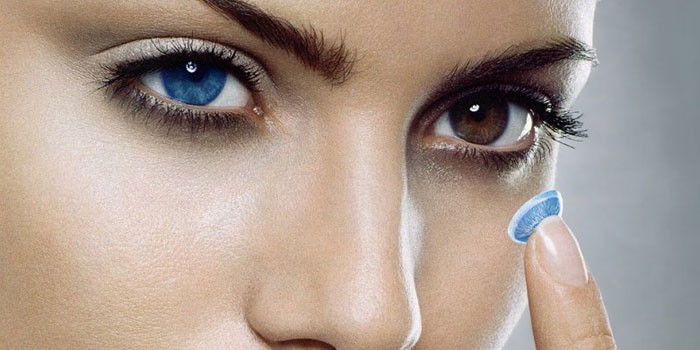
About a third of people with visual impairments prefer to wear contact lenses instead of glasses. They do not cause discomfort during the day like glasses. In addition, ophthalmologists claim that with regular contact lens wear, vision correction occurs naturally. This happens due to the fact that the lens sticks to the pupil, so there are no distortions and refractions of light.
The main advantage is the ability to engage in physical activity, wear protective helmets and use other accessories. Contact lenses are immune to weather changes, so they don't fog up, crack or deteriorate.
Contraindications are some diseases – conjunctivitis, bronchitis, ARVI, pneumonia, allergies, tuberculosis, and so on. It is also not recommended to wear lenses for strabismus. If you follow all the recommendations and follow the doctor's requirements, then no problems arise.
Contact lens classification
As soon as your ophthalmologist examines and writes a prescription, start choosing your contact lenses. To do this, also consult with specialists. Some opticians and clinics offer computerized vision diagnostics, so that lenses are fitted without unnecessary problems.
Contact lenses are primarily classified according to their lifespan:
-
one-day;
-
two-week;
-
monthly;
-
semi-annual;
-
annual.
A simple option is daily lenses. They can be used for one day and then replaced. They are suitable for those who only use them from time to time. Plus, you don't have to worry about an eye infection, or the lens getting damaged or lost.
Long-lasting lenses are economically beneficial. They effectively affect vision correction and help get rid of problems.
Lenses are also divided into categories depending on the mode:
-
day mode;
-
extended regimen – from 2 to 30 days;
-
mixed mode – you can shoot at a convenient time.
Daytime wear lenses are more commonly used because they allow the eyes to rest at night. In this case, you also don't have to worry about buying special drops. They also reduce the risk of developing an eye infection.
Long-term and mixed wear requires specific handling and adherence to instructions. They are not suitable for people with eye or lacrimal gland problems.
Depending on the characteristics of the material, there are:
-
tough;
-
soft.
In the first case, silicone is used, and in the second case, a hydrogel. Rigid lenses hold their shape, do not wrinkle and require a minimum of special drops. But they put more strain on the eyes.
Soft hydrogel lenses are easy to put on and take off, they are invisible, but at the same time, this material is poorly permeable to oxygen.
The main classification is based on the purpose of use:
-
optical;
-
therapeutic;
-
cosmetic.
Optical lenses are used directly to correct vision. They are prescribed by a doctor for medical conditions including myopia, astigmatism, presbyopia.
Therapeutic lenses are designed to protect the eye. They promote healing of the epithelium and help to better absorb medicines.
Cosmetic products are intended for those who want to change their appearance. They are able to change the color and pattern of the cornea.
Choose lenses for glasses or eyes only on the basis of your own preferences. In these matters, be guided by the recommendations of ophthalmologists, who will tell you exactly which means are needed for vision correction or eye protection. Otherwise, they can be harmful.
!
In the following articles, our experts will tell you how to choose the right frame for your glasses and the secrets of choosing sunglasses.
Attention! This material is the subjective opinion of the authors of the project and is not a purchase guide.


